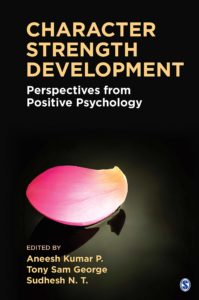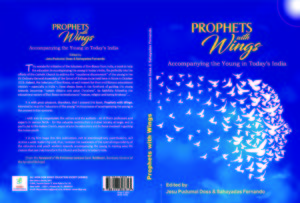 “Moulding his human personality”: Personality change and formation to priesthood in the Catholic Church
“Moulding his human personality”: Personality change and formation to priesthood in the Catholic Church
Sahaya G. Selvam
Abstract
The official documents on formation to priesthood in the Catholic Church encourage the use of personality psychology. Generally, the documents understand human personality to be dynamic. What does this mean in the light of the contemporary debate on the psychology of personality change? This article attempts to summarize the salient features of this debate, pointing out its relevance to priestly formation. Supporting a “whole-person model” of personality as proposed by Dan McAdams, the article considers the possibility of personality change at some levels in the context of religious experience facilitated by seminary formation. This article is also aimed at enlightening formation guides to make an informed decision in the choice of appropriate models of personality in the accompaniment of their candidates.
Keywords
formation to priesthood, psychology of personality, personality […]
 Benefits of Good Shepherd Catechesis among Children with Intellectual Disabilities in Kenya
Benefits of Good Shepherd Catechesis among Children with Intellectual Disabilities in Kenya “Youth” is a greasy term that slips out of the grip of any definition. Yet, everyone talks about youth, in academics, pastoral ministry, and daily life. Is the concept of youth that straightforward? Take, for instance, the age criterion in defining youth. The age-range could be as low as 12 years, as it is the case in the Ugandan Youth Policy (Uganda, 2001), and as high as 35 years, as in Kenyan constitutions, or even 40 years as in Malaysian Youth Policy. Other people offer a descriptive definition of youth in terms of energy, dynamism, and vitality. Today, as life-expectancy gets prolonged in most countries, people live very energetic and active life when they are 80 years and more. So, does a person of 80 qualify to be classified as youth? How […]
“Youth” is a greasy term that slips out of the grip of any definition. Yet, everyone talks about youth, in academics, pastoral ministry, and daily life. Is the concept of youth that straightforward? Take, for instance, the age criterion in defining youth. The age-range could be as low as 12 years, as it is the case in the Ugandan Youth Policy (Uganda, 2001), and as high as 35 years, as in Kenyan constitutions, or even 40 years as in Malaysian Youth Policy. Other people offer a descriptive definition of youth in terms of energy, dynamism, and vitality. Today, as life-expectancy gets prolonged in most countries, people live very energetic and active life when they are 80 years and more. So, does a person of 80 qualify to be classified as youth? How […] Abstract
Abstract Accompaniment suggests a journey. Every journey presupposes a destination, an end, a goal, a telos. What is the end of the accompaniment of youth? The theme of the Synod for Youth 2018 aims at accompanying
Accompaniment suggests a journey. Every journey presupposes a destination, an end, a goal, a telos. What is the end of the accompaniment of youth? The theme of the Synod for Youth 2018 aims at accompanying